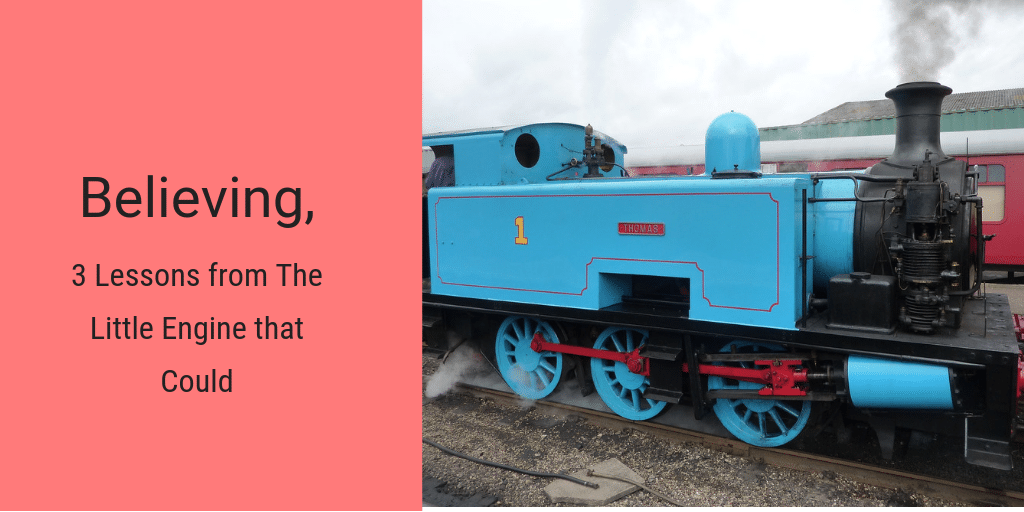This month, we are focusing on lessons from my favorite children’s books. My absolute favorite children’s book is The Little Engine That Could, by Watty Piper.
I still have the copy read to our children and now our grandchildren. It’s been read and so loved so much that we had to tape the front cover back on! The Little Engine that Could is a story about a happy trainload of toys and treats that needs to get over the mountain to supply the children on the other side.
Their engine breaks down, leaving the toys and treats stranded. The toys ask several engines for help, but each of them refuses, saying they are too big and important to pull such a load as these toys and treats. Eventually a little engine comes along and agrees to help them saying, I’m just a little train. I’ve never been over the mountain, but I’ll help you.”
The little engine pulled them up and over the mountain, saying to herself, “I think I can, I think I can, I think I can.” Because of this little train, the children on the other side of the mountain would now receive the toys and treats they were expecting.
3 lessons come from this simple children’s book:
- Ask for what you need. The toys didn’t just sit there; they asked several engines for help. They also didn’t give up when they received the first NO.
- Help may come in a different package than you expected. No doubt, the toys didn’t expect to be pulled over the mountain by the little engine, but that engine was willing to help them.
- When you are asked to help, give it your all. You will be amazed at what you’re capable of when you believe you CAN.
Applying the lessons of The Little Engine that Could
The belief in others shown by the toys and the confidence exhibited by the little engine in this story are great examples for us as leaders and business owners. I’ve learned that in my own life. As a leader, I’ve learned the hard way to ask for assistance.
When I ask for help, things get done more quickly and the quality is a much higher level. Then there’s the perception of the form help will take. I may or may not know where the help is going to come from.
Coming from the corporate world, I used to expect help to come from large agencies that had big staffs and layers of folks to support the customer experience. I’ve learned that many great resources come in small packages – solopreneurs and small agencies with nimble staffs that can provide needed services and quick turnaround.
Finally, when asked to help, give it your all. If the request is in your wheelhouse, provide all the support you can once you’ve committed. Contributing at the highest level possible, reaching beyond your comfort zone, and making the difference to put things over the top provides rich rewards.
Where do you need to ask for what you need? When have you done more than you thought you were capable of because you were willing to try and said, “I think I can”?

